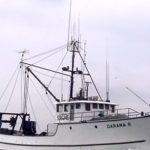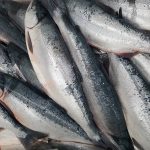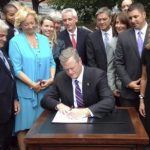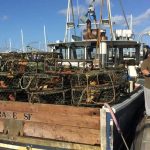Extended Closure of CA Dungeness Crab Fishing Season Will Hurt Working Families, Eliminate Holiday Crab Traditions
For Immediate Release
November 24, 2020
Crescent City, CA – The California Department of Fish and Wildlife (CDFW) today delayed the state’s commercial Dungeness crab fishing season an additional two weeks until at least Dec. 16 due to the continuing presence of whales.
“Since mid-November, fishermen have had to sit idle at the dock and accept delays in the opening of their crab season due to the new, highly restrictive and unfair RAMP rules. “And now the season is being postponed for a full month,” said Ben Platt, president of the California Coast Crab Association (CCCA). “We have basically been forced to accept these delays because according to the new rules, we risk losing the entire season if even one or two whales interact with crab lines. Meanwhile, Californians are being denied access to fresh, delicious holiday crab.”
Called the Risk Assessment Mitigation Program (RAMP), the new CDFW rules are more restrictive than even the strictest fishery laws in the nation, the Marine Life Protection Act (MLPA) and the Endangered Species Act (ESA).
But Humpback whales, the only ESA listed marine mammal which has any potential co-occurrence with the crab fishery, are a robust and thriving population. The only significant non- naturally occurring mortality to whales off the CA coast is caused by large ship strikes. These cruise and cargo ships kill between 50-150 whales a year, yet humpback whale population is still expanding at a rate of 7.5 percent annually, according to the Cascadia Research Collective (CRC), a highly respected marine mammal study center.
“When the Center for Biological Diversity first sued CDFW in 2018 over the interaction issue, there was thought to be 2,900 Humpback whales, but recent official revisions to the population count shows more than 7,200 migrating off the West Coast,” said Platt. “The California Dungeness crab fishery had only one confirmed interaction with a whale last crab season, and that whale was released unharmed. Our fishery is having zero impact on the species, and in fact, we are hopeful Humpbacks will soon be removed from the Endangered Species List.
“This is a huge success story, and in light of it, the new regulations constitute a solution in the absence of any real problem,” continued Platt. “The new RAMP rules will likely shorten the average season from seven to as little as two months, and because the crab fishery is the most widely shared and economically important fishery on our coast, the new regulations threaten the continuation of the entire West Coast commercial fishing industry. Most fishermen and seafood buyers will not be able to stay in business without a viable crab season. The long-term effects on
the rural coastal communities of California, which rely heavily on the fishing industry, will likely be
devastating.”
Meanwhile, and inexplicably, the recreational crab fishery was allowed to start on time in early November, even though CDFW determined there were too many whales present in the crab fishing grounds to allow the commercial fishery.
“It’s absurd that CDFW continues to delay the commercial fishery, which thousands of families depend upon for their fall and winter income, and also continues to deny access to millions of Californians who wish to buy our crab, when the recreational fishery poses the same potential risk of entanglements,” said Platt. “If the commercial fishery is sidelined due to potential whale interactions, then the recreational fishery, with thousands of traps now deployed in Central California waters, should also be stopped.”
The profit-driven environmental NGO's continue to overstate the need for the new RAMP rules based on higher interaction numbers from the anomalous 2015-16 season, which were driven by warm water which drove forage feed and whales close to shore. And that season started much later than usual in late March due to domoic acid delays. Since 2016, the fishing industry has adopted numerous proactive measures, including a Safe Gear Practice guide to reduce excessive slack line and extra surface buoys and a statewide Lost Gear Retrieval Program which has successfully reduced the number of interactions between crab fishing gear and marine mammals to nearly zero.
The CCCA and the crab industry continue to strive to reduce interactions between fishing gear and all marine mammals, and have proposed simple, practical, affordable gear modifications which can be used during times of higher whale presence, as we are currently experiencing during the height of the holiday crab market, but instead fishermen are tied to the dock without a paycheck to feed their families.
“Unfortunately, CDFW has not yet shown any real interest in any of our proposals: the only alternative gear type they have seriously considered is ‘pop-up’ or ‘ropeless’ gear, which has proven to be extremely cost prohibitive, impractical, and ineffective, and would actually result in more lost crab lines and more entanglements, not fewer,” said Platt. “It’s obvious that this complete non-starter of ‘alternative gear’ has gotten so much traction because it has been aggressively promoted by the powerful NGO Oceana and a host of outside gear manufacturers with no previous experience with our fishery.”
About the California Coast Crab Association
The CCCA is a non-profit 501(c)(6) trade organization composed of individual crab boat owners, hired captains and Dungeness crab buyers. The CCCA board of directors is made up of nine member fishermen and crab buyers with a combined 240 years of experience in the crab fishery. Our diverse membership includes the smallest operators with skiffs up to the largest crab boats on the West Coast, and our member-buyers range from small live crab peddlers to the largest distributor of seafood on the West Coast.
The CCCA was formed in May of 2019 after the disastrous out-of-court settlement agreement in CBD vs Bonham, which created new, highly restrictive, and unfair restrictions for the California Dungeness crab fishery. Dungeness crab is the most widely shared and economically important fishery to the West Coast commercial fishing industry, but the new ESA mandates created by CBD vs Bonham are threatening the viability of the fishery and the economic health of California’s coastal communities.
Since formation, the CCCA has been working hard with the crab fishing industry and the CDFW to find workable solutions to meet the mutually shared goals of protecting our most valuable fishery and minimizing interaction between marine mammals and our fishing gear. In recent years, the commercial fishing fleet has been proactive in addressing important issues by initiating legislation through our Dungeness Crab Task Force to create new rules, including tiered trap limits, a Whale Entanglement Working Group, a statewide Lost Gear Retrieval Program and Safe Practice Guidelines for fishermen. More information at www.cacoastcrabassociation.org.
Media Contacts:
Ray Young
Razor Sharp PR
916-505-4245
[email protected]
Ben Platt
President, CCCA
707-367-0385
[email protected]













































